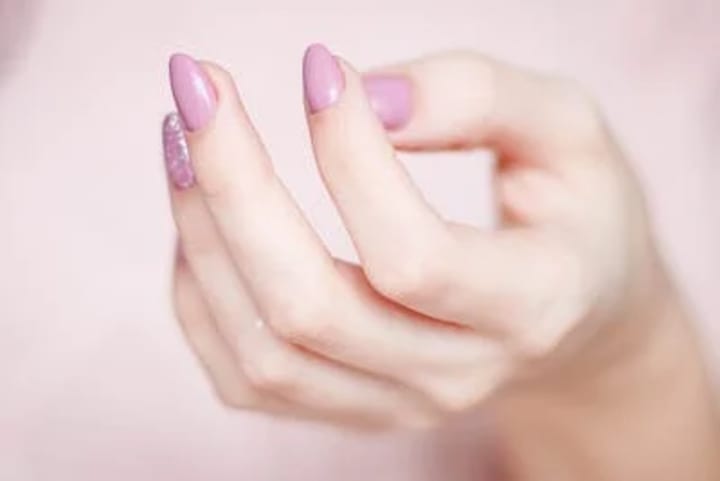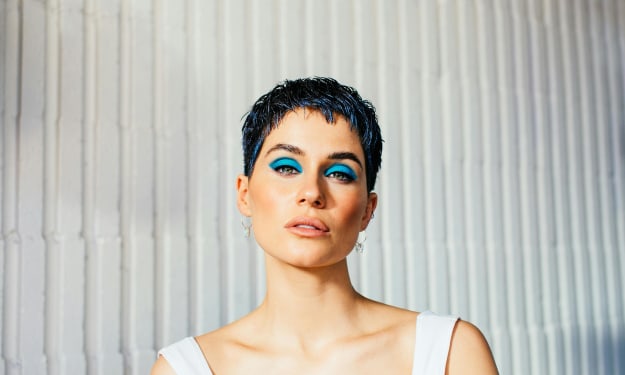Glow your Skin and Protect against Aging
Introduction

Glow your Skin and Protect againstAging
Introduction
Our skin is the largest organ of the body and is made of water, proteins, fats, and minerals. Its skin is a few millimeters thick at its thickest point. Nevertheless, it is our heaviest and largest organ, accounting for about one-seventh of our body weight. It weighs 3.5 to 10 kilograms (7.5 to 22 pounds) and has a surface area of 1.5 to 2 square meters, depending on height and weight. Our skin protects us from bacteria and regulates our body temperature. Nerves in the skin help us feel sensations such as heat and cold. It binds fluids, prevents dehydration, and keeps harmful microbes at bay. Without them, you will get an infection. Our skin is full of nerve endings that sense heat, cold, and pain. If you can't feel these things, you may end up hurting yourself without realizing it. That's why we believe proper care and maintenance are necessary to keep it looking healthy and shiny. Various chemical ingredients can be used to protect and maintain beauty. Here we discuss the antioxidants used for this purpose.

What are antioxidants?
"Antioxidants" is definitely a term often used in the health and wellness field. As you've probably heard in connection with food, skin (topical) antioxidants are also very popular, and for a considerable reason. Not only do these powerful compounds have tremendous benefits for your overall health, but antioxidants can also protect your skin from environmental stressors and minimize signs of aging. To understand exactly how they work, let's start with a simple science lesson: "Antioxidants are free radicals, highly reactive molecules that damage cells, DNA, and proteins in the body." "It is a substance that helps protect against the effects of radicals," says a dermatologist. Simply put, free radicals are not stable molecules. Antioxidants help stabilize (and thus neutralize) them before they do any harm. Antioxidants are one of the universal skincare ingredients (such as hyaluronic acid) that everyone can use, regardless of age, skin type, or complexion, and should ask a dermatologist about. It is also unique in its own way.
The only caveat?
They were not equally created. There are tons of "antioxidant serums" that are topical antioxidants for the skin. Look at this, and you'll see what we mean. and there is an important nuance behind it. Even within the subset of Elite options widely considered the best, there are some notable differences to keep in mind. Here, skin care experts explain how antioxidants are part of your skincare routine and give their best advice on choosing and using antioxidants.
What effect do antioxidants have on the skin?
So they fight free radicals—nasty little reactive molecules that can wreak havoc on your skin. "Think of antioxidants as sponges that absorb free radicals," says a dermatologist and assistant professor at the University Of Toronto School Of Medicine. Free radicals (which can be generated within the body or by external factors such as air pollution or ultraviolet radiation from the sun) cause so-called oxidative damage. Not only does this damage the DNA of skin cells, impairing their function, but it also destroys collagen and elastin, two proteins responsible for skin elasticity and resilience. Free radicals also wreak havoc by interfering with the skin's natural ability to repair itself.
Do you have a helpful image of how problematic they can be? Cut an apple in half and leave it on the kitchen counter for a day.
Will your brown, wrinkly appearance change quickly?
This is oxidative damage and a great example of what happens to the skin when exposed to free radicals. In particular, anything from fine lines and wrinkles to an uneven complexion and sagging skin can be telltale signs of free radical damage. It's worth noting that free radicals are inherently inevitable. "These are produced in small amounts each day through normal body processes, but the skin has an internal antioxidant defense system that neutralizes them and protects itself."
The problem, however, is that many other external environmental factors (ultraviolet rays, pollution, cigarette smoke, etc.) also produce large amounts of free radicals. When that happens, the skin's natural protective system becomes overloaded, and damage occurs. See how great it is to boost your defenses with topical antioxidants. This helps prevent and repair some of the destruction.
Are there any downsides to using antioxidants?
All experts agree that there really aren't that many. Some antioxidants may cause irritation (itching, burning, or redness, depending on skin color) slightly more often than others. However, as a class, it's not famous for nasty side effects like peeling and dryness like powerful ingredients like retinol and glycolic acid. The biggest potential pitfall is that antioxidant skin care products may not be as effective as they are advertised. It's not always easy to find something that works, is stable (meaning the antioxidant activity and benefits last), and can actually penetrate deep enough to work its magic. The overall formulation of the product and the type and concentration of antioxidants determine its effectiveness.
The Best Antioxidants for Your Skin Care Routine
Overall, the presence of antioxidants is better than no antioxidants, but there are some excellent products worth noting, and some may be more beneficial to certain skin types.
Vitamin C
It was the top choice and widely recommended among all professionals. While there is a wealth of clinical data supporting its effectiveness, this is not the case with many other antioxidants on the market. Why is vitamin C so distinctive? Not only does it fight free radical damage, but it also fights hyperpigmentation and aids in collagen production (which means it can smooth out fine lines and wrinkles). A few caveats: Most clinical research on topical vitamin C is based on the strongest, purest version, L-ascorbic acid, which can be a bit irritating, especially for those with sensitive skin. L-ascorbic acid is also water-soluble. It is water-soluble. This poses a problem because skin cells are hydrophobic (they repel water). "So it has to be formulated with an oily base, and people with acne-prone skin may not like this." While L-ascorbic acid is considered the gold standard, there are others worth considering. There is also a form of vitamin C. Tequitrahexyldecylascorbic acid (THD) is very stable and tends to be better tolerated by people with sensitive skin. Other forms include magnesium ascorbyl phosphate and magnesium ascorbyl palmitate. If your skin is prone to irritation, it may be worth considering one of these alternative versions.
Niacinamide
If irritation is a concern, consider taking niacinamide or vitamin B3. "Although not as potent as vitamin C, it is very well tolerated and has anti-inflammatory properties, making it ideal for those with sensitive skin, rosacea, and eczema." helps regulate oil production and reduce redness and hyperpigmentation.
Niacinamide is available by prescription and over-the-counter. Typically studied at concentrations between 2% and 10%. As previously reported, 5% is a good middle ground. If no percentage is listed, niacinamide must be one of the first ingredients on the label.
Vitamin E
"Vitamin E or tocopherols are known for their moisturizing properties and are very soothing, which makes them beneficial for dry and sensitive skin types because they not only support the wound healing process and repair damage, but they can also strengthen the skin's natural moisture barrier and reduce inflammation. Along with ferulic acid, the next-leading antioxidant on our list, you probably wouldn't think of vitamin E as your only skincare staple. Rather, it is often used in combination with vitamin C (the two work synergistically, and vitamin E actually helps counter the stimulating effects of L-ascorbic acid) and other antioxidants. Many dermatologists say most antioxidants work.
Ferulic acid
As mentioned above, ferulic acid is commonly found in serums and other skin care products in combination with vitamin C (and/or vitamin E). This is because it creates a more acidic environment to stabilize vitamin C, allowing it to remain strong and active longer. It is effective on its own but works in harmony with other antioxidants, such as vitamin E.
Polyphenol
It is a collective term for various plant-based antioxidants. "Considering that plants have needed to protect themselves from the sun for billions of years, it makes sense that they are rich in antioxidants." Polyphenols are generally good for all skin types, suitable, and may be found in organic and organic products. Those who market themselves as "natural" are not. Some of the most common substances worth noting include green and white tea extracts, lycopene (found in red and pink fruits such as watermelon), pomegranate extract, and sea buckthorn. Resveratrol is also a powerful polyphenol. You may know it as a great antioxidant in red wine, but it's also good for your skin. Although highly effective, clinical data regarding skin benefits compared to vitamin C is somewhat lacking. Still, "resveratrol has been shown to have both anti-inflammatory and antibacterial properties." Look for products that list resveratrol. That way, you can be sure you're getting enough to make a difference in your skin.
How to use antioxidants
In fact, it's pretty easy to go through an exhaustive list of potential antioxidant benefits. First, you need to choose a serum with antioxidant properties. They are lighter than lotions and usually have a higher concentration of active ingredients. It's also a good idea to look for products with multiple antioxidants. Each antioxidant offers unique benefits, so when combined, they can provide more comprehensive protection against free radicals. Many of them work together.
If you are using the antioxidant serum only once a day, apply it to clean skin in the morning before applying moisturizer and sunscreen. No matter how careful you are when applying and reapplying sunscreen, you can still cause free radical damage from UV rays and air pollution. Antioxidants provide a second layer of protection throughout the day. You can use the antioxidant serum at night if you want, but you can double the amount on your skin, but it should rather be done in the morning. Just be patient. Free radical damage doesn't happen overnight, nor does it benefit from antioxidant activity. In another way, it's a long-term process. By the time you start in your 20s, its effects can be much more subtle, as some of the free radical damage can be prevented from happening in the first place, preventing the visible signs of aging. However, antioxidants also have a restorative effect. If you're trying to undo past damage, remember that it can take weeks or longer to notice changes. At first, your skin may just look more plump and radiant, but it may take months to see the changes. I notice a reduction in fine lines and wrinkles.
How about oral antioxidants?

We still don't know exactly how the antioxidants we get through our diet (or supplements) affect our skin. A few controlled studies have shown that oral antioxidants can have significant effects on the skin. One study suggests that the consumption of polyphenols found in green tea and caffeine may help prevent photo-aging, but this was done by answering a questionnaire on polyphenol intake before analyzing the skin. As observed in a group of 244 Japanese women, it's always a wise decision to eat a variety of antioxidant-rich foods, including brightly colored fruits and vegetables. These are generally good for general health and do not harm the skin. However, applying topical antioxidants remains the best solution for maintaining a healthy glow.
Summary:
Antioxidants are a worthy addition to our skincare routine, and they are effective. There are many great options to choose from, each with its own nuances and benefits.
Study links....https://dayowls.blogspot.com/2023/07/glow-your-skin-and-slow-aging.html
health2livefit.wordpress.com/2023/07/04/glow-your-skin-and-protect-aging/
About the Creator
ghulam muhammad
Name: Ghulam Muhammad
Freelance Health and wellness Blogger,
Blog sites: health2livefit.wordpress.com
https://dayowls.blogspot.com/





Comments
There are no comments for this story
Be the first to respond and start the conversation.